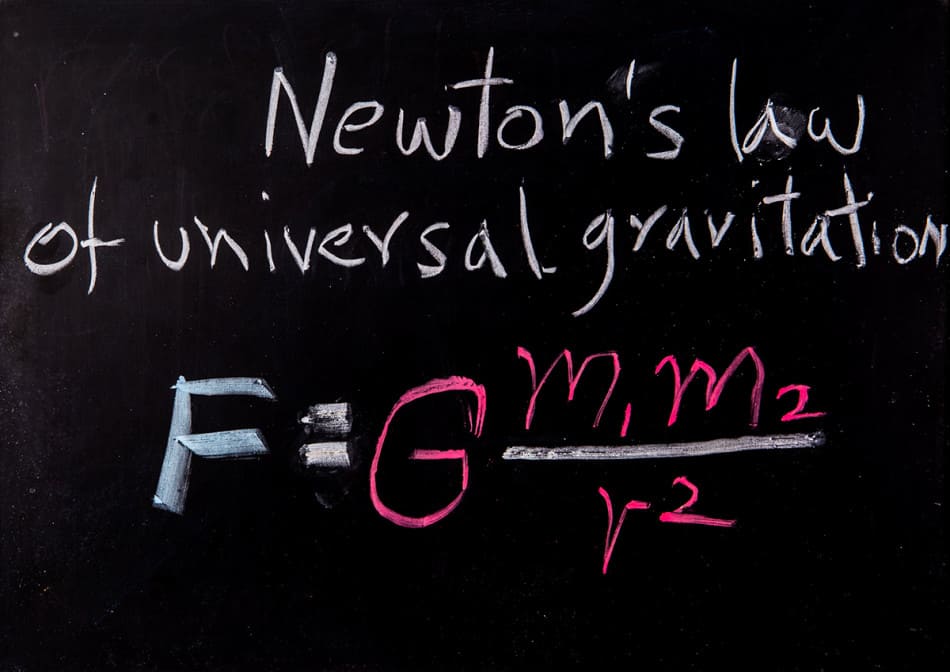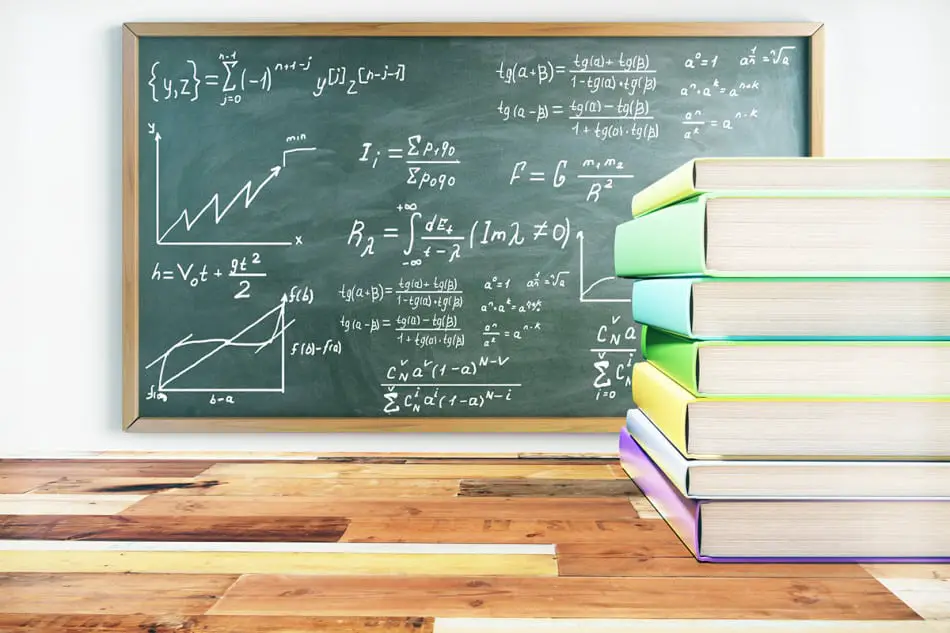In the digital age, we can teach ourselves a variety of skills and subjects. The ability to self-learn is not limited to hobbies like playing musical instruments or sewing, but is applicable in academic subjects as well.
You can even self-learn perceived “difficult” subjects like physics.
Here’s how you can self-learn Physics:
- Know the order of subjects.
- Learn from a textbook.
- Learn from other books about Physics.
- Look for online resources.
This article is the ultimate guide to how to self-learn physics. It explores a variety of different ways to teach yourself physics, including using textbooks and online courses. When deciding which methods to choose, consider what learning style works best for you.
1. Know the Order of Subjects
To learn Physics, it’s crucial to have a basic understanding of the sub-subjects under Physics and the order in which you should study them. It’s best to start with subjects like systems of measurement, followed by vectors.
The more complex subjects include fluid mechanics and thermodynamics.
Larkin (2017) suggests that the order in which different physics topics are learned can help improve students’ capacity to learn this topic. This section explores the subjects you should include when learning physics and what order you should study them.
Systems of Measurement
You might want to start studying systems of measurement which deal with units and standards of measurement. In this subject, you’ll also delve into how to convert units and solve fundamental measurement problems. Later, you’ll learn how to solve problems in physics, using what you learned in this first section.

Vectors
Vectors deal with understanding the concept of quantities and how they can have both magnitude and direction. Developing an understanding of vectors will help you understand how to solve more complex physics problems.
When you use vectors in physics, you can see things in relation to position, velocity, acceleration, and displacement.
Newton’s Laws
In this subject, you’ll build on an understanding of Newton’s Law of Motion. This law explores the relationship between an object and the force acting on it, such as gravity.

It’s considered the foundational theory of physics and is divided into three principles:
- Objects remain either in rest or in motion until a contradictory force acts on them.
- When an object accelerates, its pathway depends on the type acting on it.
- When an object exerts a force on a second object, the second object will exert an equal and opposite force back.
It’s vital to study Newton’s Laws early in your Physics study course.
Momentum and Energy
In Physics, the study of momentum and energy focuses on calculating how an object moves. To study momentum and energy, you’ll have to understand a variety of formulas and how to apply them. The most famous equation in physics, of course, is E=mc².
This equation was discovered by Albert Einstein, and it represents the following:
Energy = mass * the speed of light squared
When you self-learn physics, this equation will be one of the very first things you’ll learn in momentum and energy.
Rotational Motion
Rotational motion studies objects which move in a circular path in a standard motion.
For instance, a rotational motion may involve considering the speed and direction in which the Earth rotates around its axis. Like with momentum and energy, a rotational motion will call upon you to learn and apply various formulas.
Universal Law of Dynamics
The Universal Law of Dynamics originates with Newton’s theories. It focuses on the concept of different forces and how they may balance each other out. Other subtopics in the Universal Law of Dynamics include forces and acceleration, kinetic energy, and angular momentum.
Fluid Mechanics
Until the universal law of dynamics, the topics explored typically focus on the movement and energy of solid objects. When studying physics, you may pay special attention to different fluid mechanics, including fluid properties and how they move, how pressure affects fluid, and how liquid can transform.
Thermodynamics
Thermodynamics involves the study of heat and how it interacts with energy.
For instance, it may consider how thermal energy and heat can change matter and create other forms of energy. It also looks at the relationship between heat, cooling, and temperature, as well as Newton’s law of cooling, which considers how temperature is reduced.
Use this overview of the core subjects of physics to structure your learning. Studying these subjects in the order explored will help you develop a core understanding of physics principles.
2. Learn From a Textbook
You can self-learn Physics by using a beginner’s Physics textbook.

Look for Physics textbooks that have core Physics subjects like systems of measurement and Newton’s Laws. Some excellent beginners Physics textbooks include Basic Physics: a Self-Teaching Guide and Quicksmart Introductory Physics.
This section explores some of the best physics textbooks for beginners. These textbooks are all available on Amazon.com, and some of them are available in ebook format so you can get them immediately.
Read our guide on How To Teach Yourself With A Textbook.
Basic Physics: A Self-Teaching Guide
As its name suggests, this book has been designed to help an individual teach themselves physics. It includes introductions to crucial Physics concepts including:
- Motion
- Force
- Atoms and Molecules
- Newton’s Laws
As well as an explanation of each concept, each chapter has a clear objective and has several questions that test your knowledge of the topic being explored. As an added advantage, the questions are contextualized to see how the concepts you are learning are applicable in the real world.
I would highly recommend checking out the book here.
Quicksmart Introductory Physics
Quicksmart Introductory Physics starts with the assumption that the student has no background knowledge of Physics. So, it explains all the basic concepts of Physics in great detail. To test your knowledge, it has several practice questions for each topic and chapter.
Everything You Always Wanted to Know About Physics
This textbook is best if you’re about to begin a college-level Physics course and you want to refresh your knowledge of the basics. It includes definitions of core Physics concepts, equations, and practice questions to help you recall the application of particular concepts.
Some of the core topics it explores include gravity, energy, sound and light, and equilibrium.
I would highly recommend checking out the Book here.
Physics Essentials For Dummies
Physics Essentials for Dummies explores the core concepts of physics, including force and momentum. It presents an overview of Physics in accessible language and connects each concept to real-life scenarios. Some of the subjects it explores include vectors, force, and relativity.
This book is available in both Kindle and Paperback versions. You can check it out here.
Quantum Physics for Beginners
This book delves into more complex Physics topics, exploring what Quantum Physics is and its characteristics. It also includes explorations of wave theory and electromagnetic theory. While it doesn’t provide questions and answers to problems centered around Quantum Physics, it does provide contextual explanations.
The book is available in Kindle, softcover, and hardcover formats. I would highly recommend checking it out here.
Schaum’s 3,000 Solved Problems in Physics
It’s written by Alvin Halpern who has experience in teaching Physics as well as researching the field. He uses his extensive knowledge in this book, which explores a wide variety of Physics problems with answers and the working and reasoning behind the answers.
It has positive reviews from hundreds of students both in high school and college. It helps you prepare for tests and exams to solve the questions and then refer back to the answers to test your understanding.
If you are already a little bit more advanced in this topic I would highly recommend checking it out here.
3. Learn From Other Books About Physics
Textbooks might help you build on your understanding of core concepts, but you should also read more general physics books to understand the subject better. Some of the best general books are The World According to Physics and Astrophysics for People in a Hurry.
This section explores some of the best general books about Physics (all are available on Amazon.com).
The World According to Physic
Written by Jim Al-Khalili, this book explores some of the core concepts of physics, including relativity, quantum theory, and thermodynamics. It explores how these physics concepts connect to the natural world and our understanding of it.
It’s written in simple, straightforward language and is ideal for beginners.
This book is available in various formats, as you can get it delivered immediately to your Kindle or Audible or order a physical copy. You can check it out here.
Astrophysics for People in a Hurry
Astrophysics for People in a Hurry is written by Neil DeGrasse Tyson. It’s written in narrative style and explores critical questions about how the universe is constructed and its connection to physics. It makes for a light but informative read.
You can get softcover, hardcover, and Kindle variants of this book here.
Six Easy Pieces: Essentials of Physics Explained by Its Most Brilliant Teacher
This is a classic book about physics that all Physics students should read. It’s a collection of essays and speeches delivered by Richard Feynman, an early American physicist. Some of the essay topics include atoms in motion, conservation of energy, and the theory of gravitation.
These essays are in accessible language, but it’s best to use a textbook to understand the core Physics concepts before reading this book.
It’s available in Kindle, Audiobook, hardback, and paperback formats. I would highly recommend checking it out here!
4. Look for Online Resources
In the digital age, there are several resources on the internet that you can use to self-learn physics. These include online, self-guided courses, using resource banks, and watching videos and lectures.

This section explores the different online resources you can use to teach yourself Physics, and I also recommend that you check out our guide to the best websites for self learners.
Self Guided Courses
There are several self-guided, self-paced courses that you can use to teach yourself Physics.
Here are some of the best online courses:
- University of Virginia’s online course on Coursera: This course presents an introduction to Physics through video lectures and reading material. It’ll ask students to consider everyday actions like skating and throwing a ball and explain the Physics concepts at play. I attended the first few classes for you and would highly recommend giving the course a try!
- Physics Fundamentals by the LearningHub on Skillshare: This course teaches you the essential fundamentals of physics. It will serve as a fundament for your future self-learning endeavors. I would highly recommend checking it out!
Resource Banks
As you develop your knowledge of Physics, you may find that you need extra support. Resource banks can offer tutor help, question and answers in the topic you’re studying, and flashcards.
Some of the resource banks you can use when self-learning Physics include:
- Course Hero: Course Hero has online textbooks and step-by-step explanations for specific concepts and problems. It also has a collection of expert tutors that you can ask for help with 24/7. It has a paid subscription model, but you can also access it for free to upload your study resources.
- Chegg: Chegg offers in-depth study guides and has a bank of questions and answers that will help you practice problems. It also has solutions to textbook problems and offers access to tutors.
- Quizlet: Quizlet has a range of learning tools, including flashcards and study sets. You can use Quizlet to practice unfamiliar problems.
How To Improve Your Skill in Physics
As you study Physics, there are several approaches you can take to improve your understanding and performance in it.
Some of the things you can do include:
- Build on your math skills: The study of Physics and Math are closely related. To help improve your aptitude in Physics, you should also learn Math concepts like Trigonometry, Calculus, and Algebra.
- Practice: To build on your skill in Physics, you must practice Physics problems continuously. Try to find a wide range of problems both in real-world and hypothetical contexts.
- Join a study group: Even if you aren’t studying a formal Physics course, you can look for Physics focused study groups. These may include university or high school students who are also studying Physics. Working with a study group may help you understand concepts that you’re finding difficult.
- Experiment: As you learn about concepts like motion, try to apply them by experimenting with objects around you.
- Learn how to self-learn properly: this will make your learning easier, more efficient and fun! Check out our Ultimate Guide To Self Learning.
Conclusion
To self-learn Physics, you should first have an understanding of the topics you need to learn. Depending on your learning style, you can self-learn Physics with textbooks or use online courses.
To deepen your understanding of Physics, it helps to read general books about Physics and use online resource banks. Continuous practice and engagement with Physics concepts will help your learning journey.
If you are interested in self-learning Physics maybe you want to check out our blog post about “How to self-learn chemistry”.






